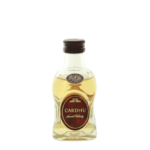
Cardhu 12 Year Old Miniature (1990s Edition)
5cl / 40%
£9

| Country | scotland |
| Region | speyside |
| Established | 1824 |
| Owner | Diageo |
| Type | Single Malt |
| Number of stills | 6 stills |
| Visitor center | Yes |
| Status | Active |
| Phone | +44 1479 874635 |
Cardhu (translated as Black Rock) is another superb Speyside distillery near Archiestown, Moray, Scotland, established in 1824 by John Cumming (a whisky smuggler) and his wife Helen. The distillery was originally operated as an agricultural distillery, they produced seasonal whisky from grain that did not sell in the market. From around 1811, records show that John Cumming looked after the farmland, while Wily Helen also looked after the running of the house and the distillation of the whiskey.
John Cumming received a distillery license in 1824, which marked the official establishment of Cardhu. In the following years, Cardhu became a family business in which all children played an important role.
After John's death in 1846, his wife Helen and son Lewis continued operating the Cardhu Distillery. The distillery and farm were officially ceded to Lewis. In the succeeding years, he employed a brewer and a maltman. When Lewis died in 1872, his wife Elisabeth aided by her mother-in-law Helen and her two young sons continued running the distillery. For this reason, Cardhu remains the first distillery officially opened by a woman.
As the demand for whisky increased, Elisabeth purchased new land not far from the old farm and constructed a new Cardhu Distillery with the same sources of water. It could produce three times more whisky than the previous one. The distillery had established itself as a favourite among blenders, but as early as 1888, it was available as a single malt in London.
In 1893 Elisabeth made a very vital resolution: she transferred the ownership of Cardhu distillery to John Walker & Sons for a sum of £ 20,500 but she ensured her family to own shares in Walker’s company. She died a year later and had no chance of seeing the success of her prudent decision. Under the protection of the large Cardhu company, the distillery endured the hard times caused by the collapse of the whisky market in 1898. The distillery also doubled its stills in 1899 and was connected to the railway by building a new road.
Distillers Company Ltd, now Diageo, purchased the distillery in 1930. It was rebuilt and expanded in the 1960s to meet the growing demand for whisky in the post-war period. In 1965, the word "Cardhu" became a trademark and the registered name was used to sell single malt whisky. In 1981, the original name “Cardow” was renamed Cardhu Distillery, a slightly different spelling of the original Gaelic word translated as "black rock".
Cardhu possessed three pairs of steam-heated stills, which form the basis of the distillery’s whisky production. The washing stills together produce 36,000 litres, and the pot stills 31,500 litres. The first expansion took place in 1899 when the stills were doubled to four. Since rebuilding and extension in the 1960s, the stills have grown to six.
In Dec 2003 a "Cardhu Pure Highland Malt Scotch Whisky" was available, causing a mix-up and argument in the whisky industry: Diageo Vatted single malt from various Speyside distilleries and filled the malt with a bottle shape identical to that of Cardhu single malt. This prompted the SWA Scotch Whisky Association to review regulations and define terms describing categories such as single malts or blended malts. Although Cardhu single malt whisky is very successful, most of the distillery's output is still used for Johnnie Walker blends.
In 2018, Diageo announced plans of action to spend £150million to improve the tourist facilities across Scotland, as well as a new home for Johnnie Walker in Edinburgh and upgraded guest centres in Cardhu, Glenkinchie, Caol Ila, and Clynelish, symbolizing some of the regional styles present in Walker.
Sorry, there are no news from this distillery yet.

5cl / 40%
£9
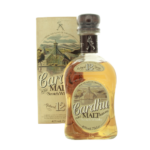
75cl / 40%
£99
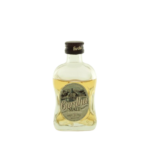
5cl / 40%
£19
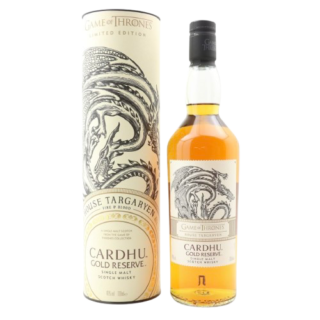
70cl / 40%
£59
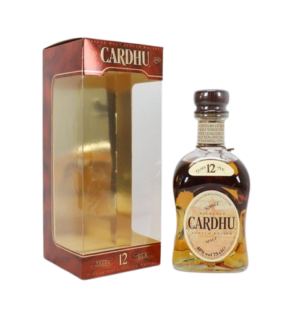
75cl / 40%
£99
About Glenbotal
The idea of Glenbotal came to us naturaly: as whisky lovers, we were always on the lookout for new experiences in the whisky world. That’s why we created Glenbotal and became our very own first customers. We buy unique and hard to find spirits from auctions, ballots, and private collections. Then, we share them with a small circle of friends and people who can appreciate a good dram.